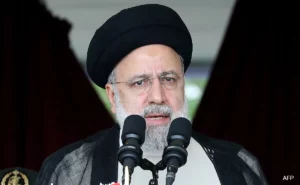US and UK alarmed over Iran-Russia military cooperation

Iran-Russia military cooperation
The escalating military cooperation between Iran and Russia has raised significant alarm in the United States and the United Kingdom. Recent developments indicate a potential exchange of military capabilities, including nuclear technology and ballistic missiles, which could have far-reaching implications for global security.
Growing Concerns Over Military Cooperation
Nuclear Technology Exchange
The most pressing concern for Western nations is the possibility that Russia is sharing nuclear secrets with Iran. This exchange may be part of a broader military partnership, wherein Iran provides Russia with ballistic missiles, particularly the Fath-360, in return for advanced nuclear technology. U.S. Secretary of State Antony Blinken has emphasized that this relationship is a “two-way street,” with both nations engaging in destabilizing activities that threaten global security.During a recent meeting in Washington, D.C., U.S. President Joe Biden and UK Prime Minister Keir Starmer discussed these alarming developments. They acknowledged Iran’s ongoing efforts to enrich uranium, which could facilitate its long-standing ambition to develop nuclear weapons. British officials have expressed fears that Iran’s growing military capabilities, coupled with its nuclear ambitions, pose a direct threat to regional stability, particularly concerning Israel.
Military Assets and Strategic Implications
Since the onset of the Ukraine conflict, the relationship between Iran and Russia has intensified. Iran has supplied Russia with drones and missiles, which have been used in the ongoing war against Ukraine. Reports indicate that Iran has also assisted Russia in establishing drone manufacturing facilities on its soil. The U.S. intelligence community has confirmed that Iran has delivered a significant shipment of ballistic missiles to Russia, capable of striking targets up to 120 kilometers away, further complicating the military landscape in Ukraine.This military collaboration has prompted a reevaluation of strategies among Western allies, with discussions about providing Ukraine with advanced weaponry, such as Storm Shadow missiles, to counter the enhanced Russian capabilities bolstered by Iranian support.
Regional and Global Repercussions
Impact on Middle Eastern Tensions
The implications of this military partnership extend beyond Europe. Iran’s support for militant groups like Hezbollah and Hamas, coupled with its nuclear ambitions, has heightened tensions in the Middle East. Israel views Iran’s advancements as a direct threat, particularly in light of Iran’s recent missile and drone attacks aimed at Israeli targets. The potential for Iran to acquire nuclear weapons, facilitated by Russian technology, raises the stakes for regional security and could lead to a new arms race in the Middle East.
Response from Western Nations
In response to these developments, the U.S. and its allies are considering new sanctions against Iran, particularly if the missile transfers are confirmed. The European Union has also indicated that it may impose additional measures against Iran if it continues to support Russia’s military efforts in Ukraine. The urgency of these discussions reflects a broader concern about the formation of an “axis of upheaval” among nations like Iran, Russia, China, and North Korea, which could reshape global power dynamics reminiscent of the Cold War era.
Conclusion
The deepening military cooperation between Iran and Russia poses significant challenges for the U.S., UK, and their allies. As both nations continue to strengthen their ties, the potential for destabilization in the Middle East and the risk of nuclear proliferation become increasingly pronounced. The international community must remain vigilant and responsive to these developments to mitigate the risks associated with this burgeoning alliance.






